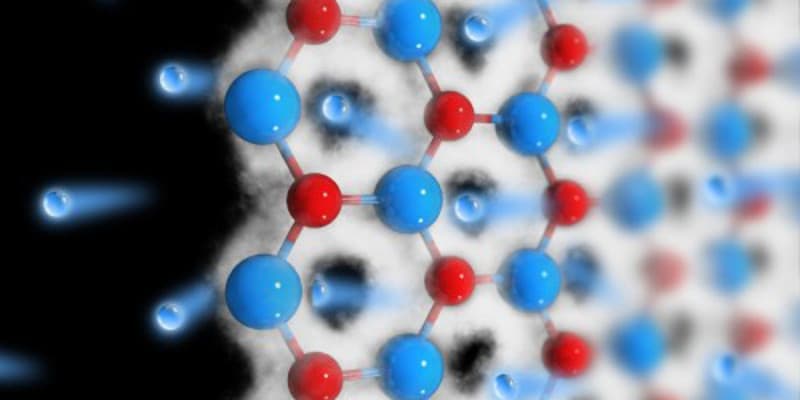Researchers Use Graphene To Filter Hydrogen Isotopes - Nuclear Industry To Benefit
According to a research at University of Manchester led by Sir Andre Geim, monolayer membranes made from Graphene can help isolate nuclei of hydrogen from its heavier isotope deuterium. This can well simplify the process of production of heavy water and help in cleaning of nuclear wastes from radioactive tritium. Heavy water 'D2O' is water in which both hydrogen atoms have been replaced with deuterium, the isotope of hydrogen containing one proton and one neutron. Heavy water is one of the two principal moderators which allow a nuclear reactor to operate with natural uranium as its fuel.

Although one speaks of "making" heavy water, deuterium is not made in the process; rather, molecules of heavy water are separated from the vast quantity of water consisting of H2O or HDO (singly deuterated water), and the "dross" is discarded. Deuterium being the key component here could now be easily separated using this one atom thick membrane. Deuterium is also widely used in analytical and chemical tracing technologies.
The current technologies for production are heavily energy consuming and have presented major industrial and scientific hurdle, however the use of graphene could mean producing heavy water for nuclear power plants to be ten times less energy intensive, simpler and cheaper.
The researchers were surprised to observe when the deuterons (nuclei of deuterium) didn’t pass through the graphene and its sister material boron nitride, as they were expected to do following the existing theory which didn’t predict any difference in permeation behaviour for both isotopes (hydrogen and deuterium). The nuclei on the contrary were not only retained back but were filtered out with high separation efficiency.
They also demonstrated the full scalability of separation. By means of a chemical-vapor-deposited (CVD) graphene centimetre-sized devices were built that effectively pumped out hydrogen from a mixture of deuterium and hydrogen.
Tritium, another heavy isotope of hydrogen is radioactive a by product of electricity generation at nuclear fission plants. It requires to be safely removed. Future nuclear technology can well comprise of combining of two isotopes of tritium and deuterium.
This research work was published in the journal Science. India, being one of the main producers and exporter of heavy water can have significant implications of the research in its nuclear program undertakings in future.
Source:<a href="https://www.manchester.ac.uk/discover/news/graphene-the-finest-filter/" target="_blank" rel="nofollow noopener noreferrer">Graphene, the finest filter</a>

The current technologies for production are heavily energy consuming and have presented major industrial and scientific hurdle, however the use of graphene could mean producing heavy water for nuclear power plants to be ten times less energy intensive, simpler and cheaper.
The researchers were surprised to observe when the deuterons (nuclei of deuterium) didn’t pass through the graphene and its sister material boron nitride, as they were expected to do following the existing theory which didn’t predict any difference in permeation behaviour for both isotopes (hydrogen and deuterium). The nuclei on the contrary were not only retained back but were filtered out with high separation efficiency.
They also demonstrated the full scalability of separation. By means of a chemical-vapor-deposited (CVD) graphene centimetre-sized devices were built that effectively pumped out hydrogen from a mixture of deuterium and hydrogen.
Tritium, another heavy isotope of hydrogen is radioactive a by product of electricity generation at nuclear fission plants. It requires to be safely removed. Future nuclear technology can well comprise of combining of two isotopes of tritium and deuterium.
This research work was published in the journal Science. India, being one of the main producers and exporter of heavy water can have significant implications of the research in its nuclear program undertakings in future.
Source:<a href="https://www.manchester.ac.uk/discover/news/graphene-the-finest-filter/" target="_blank" rel="nofollow noopener noreferrer">Graphene, the finest filter</a>
0
